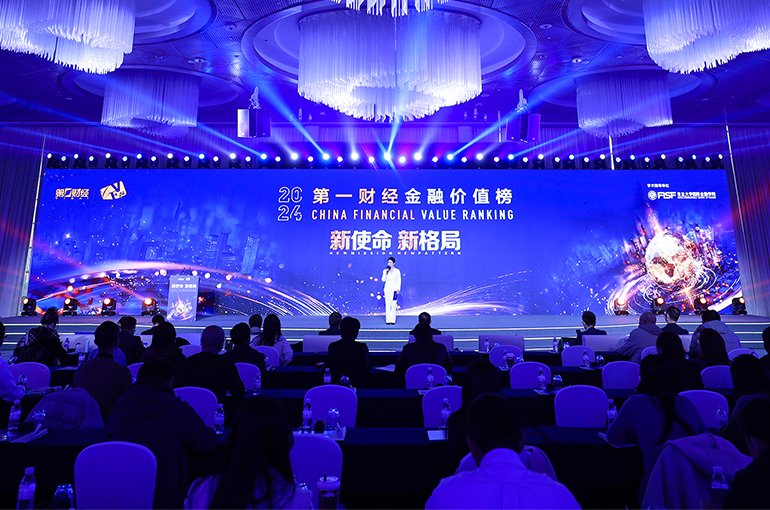 China Still Has Room for Rate Cuts, Economists Say at Yicai Summit
China Still Has Room for Rate Cuts, Economists Say at Yicai Summit(Yicai) Nov. 29 -- The Chinese government can trim rates further amid the roll out of more policy support, even though the loan prime rate is now the lowest it has been since the benchmark interest rate was introduced in 2019, a number of experts said at Yicai’s annual China Financial Value Summit in Shanghai yesterday.
There is still room for interest rates to be lowered a further 40 basis points, Sheng Songcheng, professor of economics and finance at China Europe International Business School, said at the summit which had the theme "New Mission, New Pattern" this year and focused on China's current economic changes and financial reform process.
Economists and scholars discussed China's economic and policy prospects, capital market outlook as well as overseas risks and challenges at the forum. They analyzed how interest rate cuts enhance the effectiveness of debt for equity swaps and greatly reduce local governments’ expenditure on interest payments.
The recent CNY10 trillion (USD1.3 trillion) debt-for-equity initiative has motivated local governments and eased liquidity risks, but the debt risk resolution process is far from over, said Luo Zhiheng, chief economist at Yuekai Securities.
It is necessary to promote fiscal and tax reforms to prevent the resurgence of hidden debts, Luo said. The central government could set up a "real estate stabilization fund" specifically for guaranteeing the delivery of houses and land reserves so as to send a strong signal that will stabilize the real estate market.
It is difficult to determine how much the US may hike tariffs once Donald Trump takes power, but there will certainly be an adverse impact on China’s exports, said Li Xunlei, chief economist at Chutai International.
Based on historical precedent, tariffs do not significantly reduce the volume of exports from the taxed countries to the tariff-imposing countries, said Hong Hao, chief economist at Shira Group. When the US imposed levies on Chinese goods in 2018, the People's Bank of China devalued the Chinese yuan to offset the impact, and the tariffs did not lead to inflation as expected.
US tech stocks are currently overvalued and may face corrections, Hong said. By contrast, the cash reserves and market capitalization of Chinese tech stocks are very high, and there is huge potential for profit growth in the next few years. This highlights the serious imbalance in market pricing.
US companies account for nine of the world’s 10 biggest companies by market value, said Qian Jun, executive dean of the International Finance Institute at Fudan University. Although there is a gap between Chinese and US tech firms in terms of R&D investment, Chinese firms have been steadily increasing their efforts in this regard in recent years.
Editor: Kim Taylor